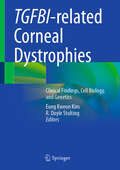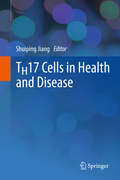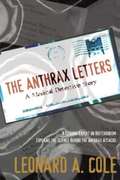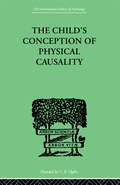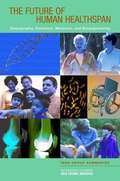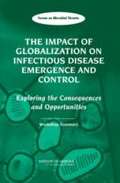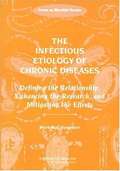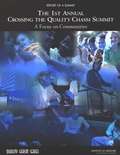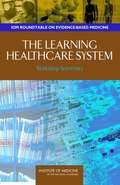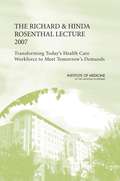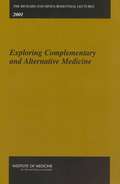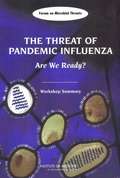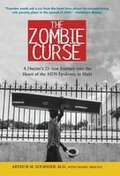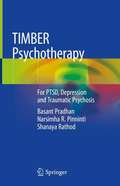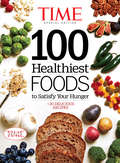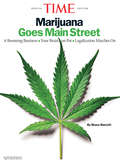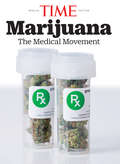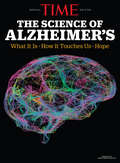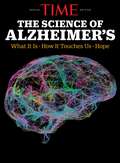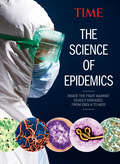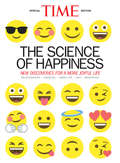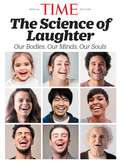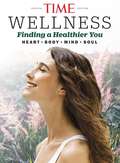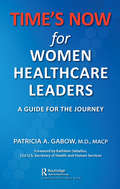- Table View
- List View
TGFBI-related Corneal Dystrophies: Clinical Findings, Cell Biology, and Genetics
by Eung Kweon Kim R. Doyle StultingThis book provides up-to-date information about the basic cell biology, protein processing mechanisms, genetics, and treatment strategies for TGFBI-related corneal dystrophies. Extensive illustrations document the clinical appearance of these dystrophies, and details of their cell biology provide our current understanding of intracellular pathologic mechanisms related to the mutated TGFBI protein. Descriptions of metabolic pathways involving TGFBI protein include recent information about the intracellular processing of normal and mutated TGFBI proteins. Detailed descriptions of the pathologic basis for TGFBI-related corneal dystrophies and possible strategies for human gene therapy are provided. This book offers a rich source of information about the pathogenesis, diagnosis, and treatment options for practicing ophthalmologists, specialists, and trainees.
TH17 Cells in Health and Disease
by Shuiping Jiang"About 25 years ago, Mosmann & Coffman introduced the TH1 / TH2 paradigm of T helper cell differentiation which helped explain many aspects of adaptive immunity from eliminating intracellular versus extracellular pathogens to induction of different types of tissue inflammation. However, TH1 / TH2 paradigm could not adequately explain development of certain inflammatory responses which provided impetus for the discovery of a new subset of T cells called TH17 cells. After the discovery of differentiation and transcription factors for TH17 cells, it was clear that TH17 cells represent an independent subset of T cells with specific functions in eliminating certain extracellular pathogens, presumably not adequately handled by TH1 or TH2 cells. The major role of TH17 cells has been described in inducing auto-immune tissue inflammation. The discovery of TH17 cells has expanded the TH1 / TH2 paradigm, and the integration of TH17 cells with TH1 and TH2 effector T cells is beginning to explain the underlying mechanisms of tissue inflammation in a number of infections and auto-immune disease settings." - From Chapter One by Vijay K. Kuchroo, Harvard University, USA "The recently identified Interleukin 17 (IL-17) cytokine family contributes to immunity to infectious diseases and chronic inflammatory diseases. Further studies on the regulation and function of this important cytokine family may provide better understanding on the roles of the IL-17 family in immune-mediated diseases; such knowledge may lead to the development of immunotherapeutic strategies for treatment of several inflammatory diseases." - From Chapter Two by Chen Dong, University of Texas and MD Anderson Cancer Center, USA
THE ANTHRAX LETTERS: A Medical Detective Story
by Leonard A. ColeAt 2:00am on October 2, 2001, Robert Stevens entered a hospital emergency room. Feverish, nauseated, and barely conscious, no one knew what was making him sick. It was the doctors and public health officials who solved this medical mystery. Stevens was the first fatal victim of bioterrorism in America. The events of September 11th and the anthrax attacks that followed only three weeks later were horrifying. Many of us felt we were living in a world gone mad. Already shaken by the images of jetliners deliberately flown into the Twin Towers at the World Trade Center, we were soon scared to open our mail. No longer could we look forward to birthday wishes or holiday postcards. We couldn’t even safely face the delivery of our monthly bills. We had now become literally afraid of the microbial menace that could be lurking in our mailboxes. This time terror had struck close to home—to everyone’s home. But behind the panic and the politics was a key line of defense. While the police and FBI frantically investigated a crime, there were other professionals at work, conducting their own painstaking inquiry – medical and scientific detectives hot on the trail of deadly organisms deliberately set loose in the postal system. Modern heroes in a quickly changing world, the public health officials, physicians, researchers, and scientists who staff our hospitals, clinics, and laboratories will be the first responders on the scene of any future biowarfare event. Conducting his own detective work, bioterrorism expert Leonard Cole has composed a series of fascinating stories that get to the heart of all the noisy sound bytes and hysterical headlines. Cole is the only person outside law enforcement to have interviewed every one of the surviving inhalation-anthrax victims, along with the relatives, friends, and associates of those who died, as well as the public health officials, scientists, researchers, hospital workers, and treating physicians – indeed, anyone who has something of value to add to the story. Speaking through their voices, the narrative reflects the tension and emotions stirred by the events from the fall of 2001. Fast paced and riveting, this minute-by-minute chronicle of the anthrax attacks recounts more than a history of recent current events, it uncovers the untold and perhaps even more important story of how scientists, doctors, and researchers perform life-saving work under intense pressure and public scrutiny. The Anthrax Letters amply demonstrates how vulnerable America and the world really were in 2001. It also shows quite clearly how scientific research promises to strengthen our ability to address the challenges we must meet in the future.
THE CHILD'S CONCEPTION OF Physical CAUSALITY (International Library Of Psychology Ser.)
by Piaget, JeanOur encounters with the physical world are filled with miraculous puzzles-wind appears from somewhere, heavy objects (like oil tankers) float on oceans, yet smaller objects go to the bottom of our water-filled buckets. As adults, instead of confronting a whole world, we are reduced to driving from one parking garage to another. The Child's Conception of Physical Causality, part of the very beginning of the ground-breaking work of the Swiss naturalist Jean Piaget, is filled with creative experimental ideas for probing the most sophisticated ways of thinking in children. The strength of Piaget's research is evident in this collection of empirical data, systematically organized by tasks that illuminate how things work. Piaget's data are remarkably rich. In his new introduction, Jaan Valsiner observes that Piaget had no grand theoretical aims, yet the book's simple power cannot be ignored. Piaget's great contribution to developmental psychology was his "clinical method"-a tactic that integrated relevant aspects of naturalistic experiment, interview, and observation. Through this systematic inquiry, we gain insight into children's thinking. Reading Piaget will encourage the contemporary reader to think about the unity of psychological phenomena and their theoretical underpinnings. His wealth of creative experimental ideas probes into the most sophisticated ways of thinking in children. Technologies change, yet the creative curiosity of children remains basically unhindered by the consumer society. Piaget's data preserve the reality of the original phenomena. As such, this work will provide a wealth of information for developmental psychologists and those involved in the field of experimental science. Jean Piaget (1896-1980) is known for investigations of thought processes. He was professor at Geneva University (1929-1954) and director of the International Center for Epistemology (1955-1980). He is the author of The Language and Thought of the Child, Judgment and Reasoning in the Child, The Origin of Intelligence in Children, and The Early Growth of Logic in the Child. Jaan Valsiner is professor of psychology at Clark University, and a recognized authority on the life and work of Piaget.
THE FUTURE OF HUMAN HEALTHSPAN: Demography, Evolution, Medicine, and Bioengineering
by The National AcademiesAn individual's healthspan can be defined as the length of time an individual is able to maintain good health. In 2007, over one hundred experts and researchers from public and private institutions across the nation convened to find new ways of addressing the human healthspan and the elusive nature of aging. Experts in public health, bioengineering, neuroscience and gerontology discussed how stress and lifestyle influence the decline of health at older ages. Other discussions focused on the integration of technology in the quality of life, gerontology, regenerative medicine and life expectancy with regard to social and behavioral traits. Still, other groups explored topics such as the cellular and molecular mechanisms of biological aging, the effects of exercise on the human healthspan, and changes in social context to enhance functional status of the elderly. Most importantly, experts agreed that it was imperative to ensure that the elderly have access to medical services by establishing relationships with health care and insurance providers.
THE IMPACT OF GLOBALIZATION ON INFECTIOUS DISEASE EMERGENCE AND CONTROL: Exploring the Consequences and Opportunities
by Institute of Medicine of the National AcademiesA report on THE IMPACT OF GLOBALIZATION ON INFECTIOUS DISEASE EMERGENCE AND CONTROL
THE INFECTIOUS ETIOLOGY OF CHRONIC DISEASES: Defining the Relationship, Enhancing the Research, and Mitigating the Effects
by Forum on Microbial ThreatsIn recent years, a number of chronic diseases have been linked, in some cases definitively, to an infectious etiology: peptic ulcer disease with Helicobacter pylori, cervical cancer with several human papillomaviruses, Lyme arthritis and neuroborreliosis with Borrelia burgdorferi, AIDS with the human immunodeficiency virus, liver cancer and cirrhosis with hepatitis B and C viruses, to name a few. The proven and suspected roles of microbes does not stop with physical ailments; infections are increasingly being examined as associated causes of or possible contributors to a variety of serious, chronic neuropsychiatric disorders and to developmental problems, especially in children. The Infectious Etiology of Chronic Diseases: Defining the Relationship, Enhancing the Research, and Mitigating the Effects, summarizes a two-day workshop held by the Institute of Medicine’s Forum on Microbial Threats to address this rapidly evolving field. Participants explored factors driving infectious etiologies of chronic diseases of prominence, identified difficulties in linking infectious agents with chronic outcomes, and discussed broad-based strategies and research programs to advance the field.
THE IST ANNUAL CROSSING THE QUALITY CHASM SUMMIT: A Focus on Communities
by Institute of Medicine of the National AcademiesIn January 2004, the Institute of Medicine (IOM) hosted the 1st Annual Crossing the Quality Chasm Summit, convening a group of national and community health care leaders to pool their knowledge and resources with regard to strategies for improving patient care for five common chronic illnesses. This summit was a direct outgrowth and continuation of the recommendations put forth in the 2001 IOM book
THE LEARNING HEALTHCARE SYSTEM: Workshop Summary
by Institute of Medicine of the National AcademiesAs our nation enters a new era of medical science that offers the real prospect of personalized health care, we will be confronted by an increasingly complex array of health care options and decisions. The Learning Healthcare System considers how health care is structured to develop and to apply evidence--from health profession training and infrastructure development to advances in research methodology, patient engagement, payment schemes, and measurement--and highlights opportunities for the creation of a sustainable learning health care system that gets the right care to people when they need it and then captures the results for improvement. This book will be of primary interest to hospital and insurance industry administrators, health care providers, those who train and educate health workers, researchers, and policymakers. The Learning Healthcare System is the first in a series that will focus on issues important to improving the development and application of evidence in health care decision making. The Roundtable on Evidence-Based Medicine serves as a neutral venue for cooperative work among key stakeholders on several dimensions: to help transform the availability and use of the best evidence for the collaborative health care choices of each patient and provider; to drive the process of discovery as a natural outgrowth of patient care; and, ultimately, to ensure innovation, quality, safety, and value in health care.
THE RICHARD & HINDA ROSENTHAL LECTURE 2007: Transforming Today's Health Care Workforce to Meet Tomorrow's Demands
by Institute of Medicine of the National AcademiesThe National Academies Press (NAP)--publisher for the National Academies--publishes more than 200 books a year offering the most authoritative views, definitive information, and groundbreaking recommendations on a wide range of topics in science, engineering, and health. Our books are unique in that they are authored by the nation's leading experts in every scientific field.
THE RICHARD AND HINDA ROSENTHAL LECTURES 2001: Exploring Complementaryand Alternative Medicine
by Institute of Medicine (U.S.) Staff David Eisenberg Catherine E. WotekiA report on Exploring Complementaryand Alternative Medicine
THE THREAT OF PANDEMIC INFLUENZA: Are We Ready?
by Forum on Microbial ThreatsPublic health officials and organizations around the world remain on high alert because of increasing concerns about the prospect of an influenza pandemic, which many experts believe to be inevitable. Moreover, recent problems with the availability and strain-specificity of vaccine for annual flu epidemics in some countries and the rise of pandemic strains of avian flu in disparate geographic regions have alarmed experts about the world's ability to prevent or contain a human pandemic. The workshop summary, The Threat of Pandemic Influenza: Are We Ready? addresses these urgent concerns. The report describes what steps the United States and other countries have taken thus far to prepare for the next outbreak of "killer flu." It also looks at gaps in readiness, including hospitals' inability to absorb a surge of patients and many nations' incapacity to monitor and detect flu outbreaks. The report points to the need for international agreements to share flu vaccine and antiviral stockpiles to ensure that the 88 percent of nations that cannot manufacture or stockpile these products have access to them. It chronicles the toll of the H5N1 strain of avian flu currently circulating among poultry in many parts of Asia, which now accounts for the culling of millions of birds and the death of at least 50 persons. And it compares the costs of preparations with the costs of illness and death that could arise during an outbreak.
THE ZOMBIE CURSE: A Doctor's 25-Year Journey into the Heart of the AIDS Epidemic in Haiti
by M. Fournier Daniel HerlihyThis memoir of a dedicated doctor battling the AIDS epidemic in Haiti does more than chronicle the story of a horrible disease. It is a moving tribute to the abundant courage, resilience, and dignity of a people beset by tragedy.The Zombie Curse A Doctor’s 25-Year Journey into the Heart of the AIDS Epidemic in Haiti Arthur M. Fournier, M.D., with Daniel Herlihy Dr. Art Fournier met his first AIDS patient on an autumn afternoon in 1979. Of course, neither Fournier nor his colleagues at Miami’s Jackson Memorial Hospital fully understood the chilling impact of what they were seeing. They were simply confounded by the fact that the patient failed to respond to treatment and, ultimately, died. During the next several months scores of additional patients presented themselves with similar symptoms—and met the same fate. Beyond the medical similarities, there was another bond that grouped these patients together: they were all Haitian immigrants. The zombie curse had descended on south Florida. As the AIDS epidemic unfolded around the world, Dr. Fournier witnessed the chaos, confusion, and blame that was to become associated with this baffling disease. Nothing in his background, education, or training prepared him for the journey that lay ahead. The death and misery were devastating, the disease frustrating and mysterious, and the spiritual toll as catastrophic as the physical. It soon became apparent that science alone could not win this epic battle. We follow Dr. Fournier to Haiti where he searches for ways to treat patients with AIDS—not simply the physical symptoms, but also the stereotyping and blame heaped on both the victims and even the doctors that tend to them. In large measure it is the generous spirit of a proud people that move and motivate Fournier, ultimately releasing him from his own zombie curse. This memoir of a dedicated doctor battling the AIDS epidemic in Haiti does more than chronicle the story of a horrible disease. It is a moving tribute to the abundant courage, resilience, and dignity of a people beset by tragedy.
TIMBER Psychotherapy: For PTSD, Depression and Traumatic Psychosis
by Shanaya Rathod Basant Pradhan Narsimha R. PinnintiTIMBER psychotherapy is a novel, translational and biomarker informed, mindfulness-based cognitive behavioral therapy approach that addresses some of the current treatment gaps for PTSD, depression and traumatic psychosis. This treatment manual offers practitioners and patients alike a step-by-step guide to TIMBER (acronym for Trauma Interventions using Mindfulness Based Extinction and Reconsolidation of memories) psychotherapy, and has been divided into four parts: Understanding Complex Trauma and Traumatic Psychosis; Methodology and Application; Training Professionals; and Policy Implications & Future Research Directions. In addition to a strong rationale and evidence base for the TIMBER approach, the book also provides case examples accompanied by videos (available separately). Its special features include reproducible client handouts, assessment tools, and a list of resources for training to use TIMBER.
TIME 100 Healthiest Foods to Satisfy Your Hunger
by The Editors of TIMEMany of the most filling foods available are also some of the healthiest. This book contains a list of 100 of the most satisfying, hunger-quelling foods that are easy to find and taste great!
TIME Innocent: The Fight Against Wrongful Convictions
by The Editors of TIMETIME looks at those wrongfully convicted, and the fight to set them free.
TIME Marijuana Goes Mainstreet: A Booming Business - Your Brain on Pot - Legalization Marches On
by Bruce BarcottWelcome to the end of the war on pot. With more landmark legislation in 2016, marijuana has continued its march toward legalization and normalization, 29 states having gone medically legal. In this updated adaptation, based on Bruce Barcott's groundbreaking book Weed the People, we look at some of the key issues surrounding pot:What benefits has it shown in treating conditions ranging from glaucoma to multiple sclerosis to PTSD? How did it come to be classified as a Schedule I drug?Who are the harvesters, investors and entrepreneurs bringing pot out of the shadows and grow rooms and into the marketplace?How does such a marketplace come to exist amid a complicated regulatory framework?Where do we go from here, at a time when states are increasingly pro-legalization but a new federal administration could change things at any time?
TIME Marijuana: The Medical Movement
by The Editors of TIMECanabis has been used as medicine for 4,000 years. Now, with the majority of states legalizing medical marijuana, the U.S. is discovering this plant's full potential. Discover more in TIME Marijuana: The Medical Movement.
TIME The Science of Alzheimer's
by Editors of TIMEConfusing, mysterious and unknown, Alzheimer's is among the most-feared diseases because it strikes indiscriminately and there is no known cure. Now, in The Science of Alzheimer's, a new Special Edition from the editors of TIME, we draw back the curtain to reveal the latest research on what the disease is and what it is not, and how science is working to make Alzheimer's a manageable problem with a hopeful long-term prognosis, akin to diabetes or HIV. Go inside the latest research on different types of dementia, hereditary and environmental causes, new treatments, and more. Helpful lifestyle tips show how to ward off mental decline as we age, and case histories-including the stories of musician Glen Campbell and President Ronald Reagan, who bravely shared their diagnoses with the world-reveal the human face of Alzheimer's. We also look at the latest drugs being used to treat the disease and how there is hope in recent treatments and protocols, as well as alternative treatments that may be making a difference. Packed with authoritative information from the health editors at TIME, this guide helps everyone understand a frightening disease-and recognize the strides that are being made to fight it.
TIME The Science of Alzheimer's
by The Editors of TIMEIn TIME's The Science of Alzheimer's learn more about this disease that steals the self as well as the human ingenuity and dogged persistence that gives us hope for the future in the fight against it.
TIME The Science of Epidemics: Inside the Fight Against Deadly Diseases, from Ebola to Aids
by The Editors of TIMETIME's The Science of Epidemics brings deeper understanding of Ebola and other infectious diseases from plague to polio. TIME takes readers behind the headlines not only to look at what caused Ebola to spread, but how doctors are trying to fight the disease in Africa, what the US and other countries are doing to stop it from spreading and the impact it has on survivors and society. TIME looks into the battle against other diseases as well, including the campaign in Saudi Arabia against MERS-Middle East Respiratory Syndrome-and what doctors and scientists are doing to end the AIDS epidemic. TIME explores the work of virus hunters in the field, report on the new Enterovirus D68 and the ever-present and mutating flu virus, explain how science won the fight against polio, and chronicle the deadliest viruses of all time. Filled with the behind-the-scenes reporting people expect from Time, as well as the publication's magnificent photography and informative graphics, The Science of Epidemics is a book illuminates what medical researchers and doctors in the field are doing to save millions of lives from deadly diseases.
TIME The Science of Happiness: New Discoveries for a More Joyful Life
by The Editors of TIME"Don't worry, be happy." Sounds simple enough, yet many encounter setbacks in their pursuit of happiness. What if we could definitively say: "If you do this, you will achieve a happier and healthier life?" What if we could unlock the key to happiness? Enter Science.In an all new special edition from TIME, The Science of Happiness: New Discoveries for a More Joyful Life, editors investigate exclusive, cutting-edge research from the Lee Kum Sheung Center for Health and Happiness. Focusing in on the debate surrounding whether or not there is a direct relationship between happiness and health, this special edition explores the factors that affect happiness in three outlined sections--mind, life and spirit--and considers aspects such as positivity, optimism, purpose, family, finance, spirituality, and gratitude, in order to examine happiness from different angles. Although the research included in The Science of Happiness is a work in progress, it is a step toward unlocking the key to happiness by grounding a cute catchphrase in fact and science.
TIME The Science of Laughter
by The Editors of TIMEHave you ever wondered why we laugh? If giggling is contagious? If laughter really is the best medicine? Discover that and more in this special edition, TIMEThe Science of Laughter.
TIME Wellness
by The Editors of TIMEIn the midst of the nonstop world we live in, maintaining wellness is essential to good health. This new special edition from the editors of TIME, Wellness: Finding a Healthier You, defines wellness with a multi-faceted approach, because everyone approaches the topic differently. <P><P>Wellness looks at the current trends in wellness and a few fads, and breaks down wellness in "Wellness 101," which helps define the topic and provides guidelines for maintaining health and wellness at every age. <P><P>Additional sections include: advice on how to talk about wellness with your doctor; "Living Well" and "Mind and Body," which tackle how to build a healthier, happier family; rules on clean eating; and some personal stories from people who have transformed their lives. We round out the special edition with the ultimate wellness quiz, just to make sure you were paying attention. Whether you are new to the idea of wellness, or want to bring a more balanced approach to a certain aspect of your life, Wellness is an excellent guide.
TIME'S NOW for Women Healthcare Leaders: A Guide for the Journey
by Patricia A. GabowTIME’S NOW for Women Healthcare Leaders: A Guide for the Journey Women comprise over 80 percent of healthcare frontline employees, but they often hit the proverbial glass ceiling. Only 30 percent of healthcare C-suite Executives and less than 15% of CEOs are women. Moreover, while 51 percent of medical students are women, only 16 percent of the Department Chairs and Deans are women. Clearly, women are facing barriers to achieving their potential, limiting their ability to add their unique talents and skills to the tables of leadership. The author provides extensive detail on these barriers and approaches to their solutions. This is a practical "how-to" book that will help women in healthcare envision their ability to contribute and inspire them to lead. The author sees this as not only helping women, but also facilitating solving healthcare’s myriad problems, improving health and benefitting society. *** This book is a must-read primer for women seeking leadership. It is practical, thought provoking, and carefully researched, addressing why women’s leadership is important and how women can be better leaders. Gabow’s approach capitalizes on interviews with strong women leaders. She uses the notions she learned from the interviews coupled with research from the literature to create an easy-to-read, motivating, and challenging book for women and men! Nancy AgeePresident and CEO Carilion ClinicPast Chair American Hospital Association TIME’S NOW for Women Healthcare Leaders is filled with powerful examples of how women have overcome multiple obstacles and prevailed on their leadership journeys. It is a MUST read for women and men about the obstacles to be overcome, potholes to avoid, and the shout outs to be given to women who every minute, every hour, every day are committed to human caring. It has captured the heart and spirits of women from diverse backgrounds who have and continue to demonstrate their commitment to making society a better place for all! Linda Burnes Bolton, DrPH, RN, FAAN Senior Vice President and System Chief Equity Officer Cedars Sinai Health System This highly engaging book addresses the relative dearth of women leaders in healthcare through thoughtful assessment of how leaders’ values and actions can improve healthcare within healthcare organizations and systems. Dr. Gabow, an exceptional leader whose relentless passion for excellence for patients served by Denver Health earned her national renown, combines insightful observations from her own path with current statistics about women in medicine, experiences of other successful women leaders, and mentoring skills to offer wise counsel to all current and future leaders. The thoughtful distillation of practical wisdom offered here make this book a unique contribution and highly relevant to healthcare in America today. Carolyn Clancy, M.D. Past Director, Agency for Healthcare Research and Quality This insightful book is full of personal stories, honest reflections, and data-driven guidance from and about women leaders. It serves as a wonderful resource for those motivated to advance diverse and inclusive organizations. Karen DeSalvo, M.D., MPHChief Health Officer, Google HealthPast Acting Assistant Secretary for Health, US HHSNational Coordinator for Health Information Technology, US HHS
